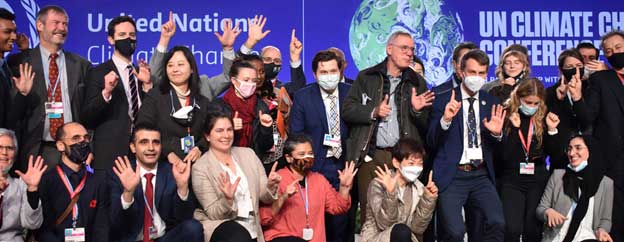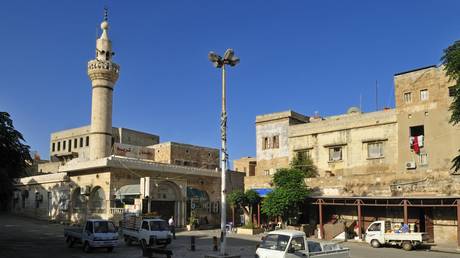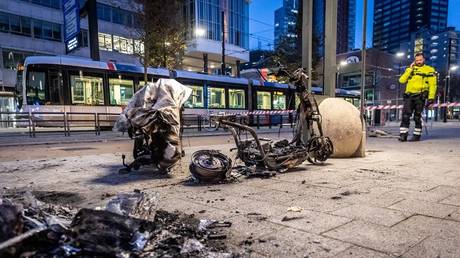Protesters thronged the streets of Australian cities on Saturday, demanding an end to what they called the “tyranny” and “oppression” of lockdowns, vaccine mandates, and the proposed expansion of the government’s pandemic powers.
In Melbourne, Sky News reporter Sophie Elsworth described “tens of thousands of people streaming through the streets.” The march came after a week of smaller protests aimed at Victoria Premier Dan Andrews’ controversial pandemic bill, which if approved by the state’s legislature would allow Andrews and Health Minister Martin Foley to declare an indefinite state of emergency and issue public health orders by decree – including “any order… that the minister believes is reasonably necessary to protect public health.”
Tens of thousands of people keep streaming through the streets. Many I’ve spoken to are concerned about the state govt, Premier, vaccine mandates, the pandemic bill & what future holds for their kids. #melbourneprotest pic.twitter.com/smexulQ4ts
— Sophie Elsworth (@sophieelsworth) November 20, 2021
Should the bill pass, it would allow Andrews to target certain classes of people with these orders, categorizing them by age, occupation, or vaccination status. Fines for noncompliance would range from up to AU$21,800 for people and AU$109,000 for businesses.
Alternative media sources claimed that more than 100,000 people showed up to protest. However, the demonstration remained free of the violent clashes seen at protests in Melbourne in recent months.
Pretty sure this is the biggest FUCK YOU in Australia’s history.#MelbourneProtest pic.twitter.com/DOtsLbpyRi
— shane whitely (@newsheli) November 20, 2021
“Australia has been willing to send troops to all parts of the world to help people become free,” one military veteran told a crowd of listeners during the protest. “To now be fighting oppression here in our own country, it’s saddening.”
Melbourne Australia 🇦🇺
An Aussie veteran is calling former servicemen and cops who have sworn an oath to Australia to stand up against the tyranny 👊 pic.twitter.com/4RsoRMjoJE
— 𝙏𝙝𝙚 𝙅𝙪𝙜𝙜𝙚𝙧𝙣𝙖𝙪𝙩 (@TheJuggernaut88) November 20, 2021
Huge numbers of protesters also turned out in Sydney, and although more than 600 police officers were deployed to watch over the gathering, no arrests were made, 9News reported.
Protestors in Sydney shouting
“SACK THEM ALL”
GO Sydney pic.twitter.com/sEUxkDeIzj— Constitutional Freedom 🇦🇺 (@section_117) November 20, 2021
Holding signs decrying state “tyranny,” the demonstrators chanted “freedom” and called for the firing of state politicians who have implemented a two-tier system where the unvaccinated are denied many of the privileges extended to the fully jabbed.
BREAKING | Thousands of protesters are gathering at Hyde Park for freedom rallies. @9NewsSyd pic.twitter.com/2FXE6jBU4M
— Airlie Walsh (@AirlieWalsh) November 20, 2021
Similarly massive gatherings took place in Adelaide, Brisbane, and Perth, with no notable incidents of violence or police action. Further afield, protests are taking place in more than 120 cities around the world this weekend, in a loosely coordinated event dubbed the ‘Worldwide Rally For Freedom’ by activists.
Thousands of people have descended across Rundle Park today as part of an Adelaide freedom rally. Some of those in the crowd say they have lost their job as a result of mandated vaccinations in their sector. @9NewsAdel pic.twitter.com/YdzvxYJhqF
— Kelly Hughes (@KellyCHughes_) November 20, 2021
Perth, Australia.. the national anthem rings out across the city.! ❤️ pic.twitter.com/P1FqsY6ECZ
— Pelham (@Resist_05) November 20, 2021
Like this story? Share it with a friend!





